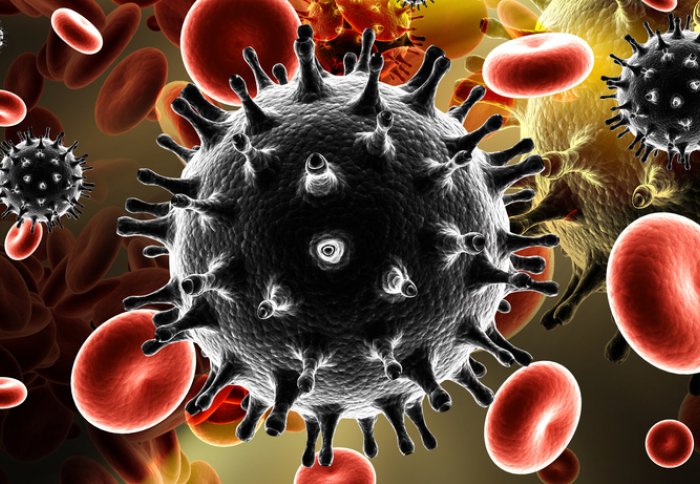HIV infection rates could be halved with better tests and treatment
by Kate Wighton

More than half of all HIV infections among men having sex with men could be prevented by ramping up existing strategies, suggests new research.
The study, lead by Imperial College London researchers, suggests that using a combination of more comprehensive annual HIV testing, together with rapidly treating infected men, and even treating some uninfected men (known as prophylactic treatment), could reduce new cases of HIV infections.
The researchers, in collaboration with the Stichting HIV Monitoring Foundation, conducted their study on data collected from almost all men having sex with men (known as MSM) in the Netherlands.
The last decade has seen life-changing progress in both treatment and prevention of HIV
– Professor Christophe Fraser
Study author
The findings, published in the journal Science Translational Medicine, suggest that nearly three-quarters of new HIV cases came from individuals who did not know they were infected.
The number of new HIV diagnosis among MSM in most parts of the developed world has not decreased significantly over the past 10 years. This is despite free and comprehensive access to effective care and treatment, as is the case in the Netherlands. Treatment involves antiretroviral medication, which reduces the number of viral particles in the body, and reduces the possibility of a treated individual infecting someone else.
To find out why the number of new cases is not significantly declining, the team studied the sources of new HIV infections among the MSM population in the Netherlands. In the Netherlands, comprehensive data on almost all individuals infected with HIV are collected by the Stichting HIV Monitoring Foundation. The team studied new infections between 1996 and 2010.
Using this data, which includes results from blood tests, the team were able to use genetic techniques to track the path of different viruses through the population, and see which individuals were likely to have infected each other. They were able to characterise and interpret 617 cases of new infections, known as transmission events, in this time frame.
Professor Christophe Fraser, co-author of the study from the School of Public Health at Imperial, said: “The last decade has seen life-changing progress in both treatment and prevention of HIV.
"Nonetheless, we find that in many populations, more needs to be done to send this epidemic into reverse. In this study, we combine analysis of the viral genetic codes and anonymised patient data to better target ramped up prevention efforts.”
The results showed that 71 per cent of new infections were from men who did not know they were infected - and almost half of all transmissions occurred from men in their first year of infection.
The team used a mathematical model to calculate how many of these cases would have been avoided if certain prevention measures were in place. This revealed that 66 per cent of new infections could have been prevented if three measures were implemented together: improved annual testing programmes, early start of treatment amongst diagnosed men, and uptake of antiretrovirals by half of all uninfected men who were classed as at risk of infection - known as pre-exposure prophylaxis.
However, using antiretrovirals for pre-exposure prophylaxis to protect uninfected men is currently not available in Europe, although it is available in the U.S.
Dr Oliver Ratmann, lead author of the study from the School of Public Health at Imperial said: “The question we needed to answer was why new HIV diagnoses haven’t significantly reduced, despite antiretrovirals being available since 1996.
"These results, which are applicable to several other European countries, suggest that preventing new HIV infections amongst men having sex with men is challenging.
"By characterizing around 600 past HIV transmission events among men having sex with men in the Netherlands, we clearly see potential for averting the majority of these through antiretrovirals, combined with new strategies leading to more comprehensive HIV testing.
"The findings of this study support making more broadly available antiretrovirals for prophylactic use by uninfected individuals in the MSM community."
The study was supported by a grant from the Netherlands Ministry of Health, Welfare and Sport through its Centre for Infectious Disease Control–National Institute for Public Health and the Environment. Dr. Ratmann received financial support from the Wellcome Trust, while two of his coauthors received funding from the European Research Council, the Bill & Melinda Gates Foundation, Bristol-Myers Squibb, ViiV Healthcare, Gilead Sciences, Janssen Pharmaceuticals Inc., and Merck & Co.
Article supporters
Article text (excluding photos or graphics) © Imperial College London.
Photos and graphics subject to third party copyright used with permission or © Imperial College London.
Reporter
Kate Wighton
Communications Division